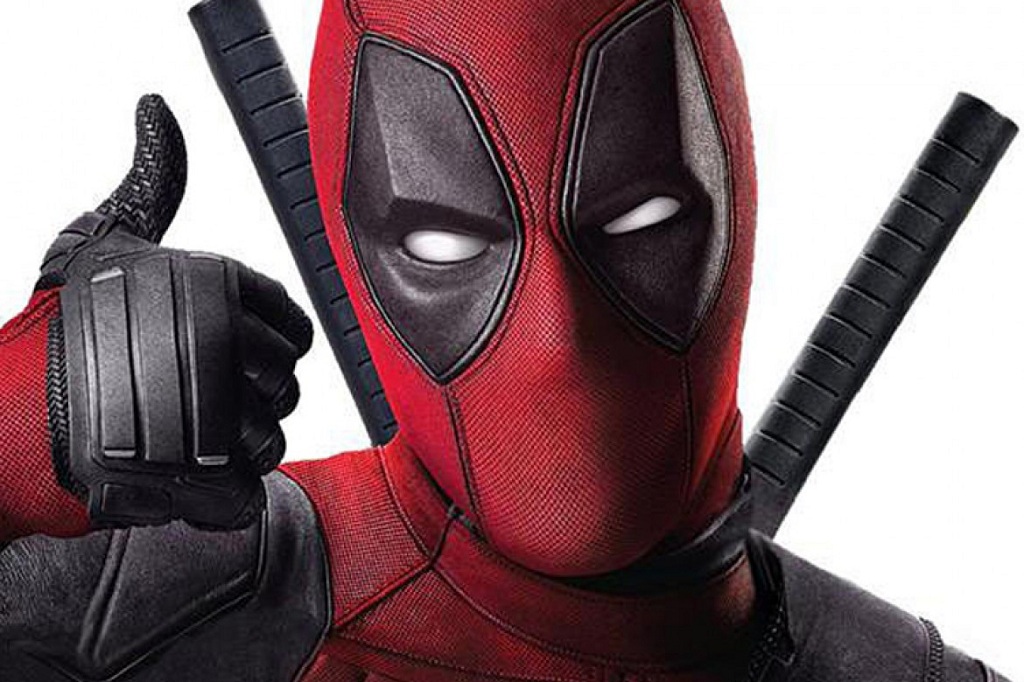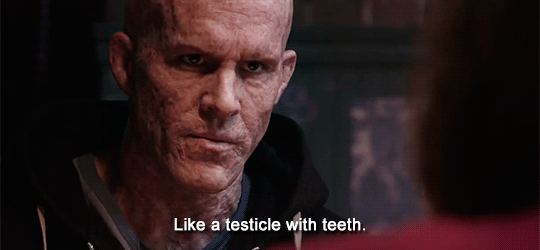“Not Everybody Has To Be A Damn Hero”: Ryan Reynolds On ‘Deadpool’ And The Value Of Sass
Can confirm: talking to Ryan Reynolds is pretty much the same as talking to Deadpool.

Ryan Reynolds looks a lot like what you’d get if you described an attractive movie star to a police sketch artist. He’s frighteningly tanned. The whites of his eyes are too clear and bright. His teeth are the sort of white that you usually only see on the hulls of cruise ships. But he’s also wise to his own ridiculousness. Sitting framed by Sydney Harbour on his press tour for Deadpool, flanked by three studio lights and two reflectors, he looks around him seeming faintly befuddled.
“This is… I know,” he says. “I wake up to this. This is the face of climate change. I’m responsible for it with my own personal lighting kit.” As he points out, this celebrity cliché is made worse by the fact his daughter’s name is James. “I know a lot of Hollywood couples that name their kid Butternut Summersquash, or who’ll be like ‘This is my son, Saturday-Night Fever’. We took a little bit of grief about that.”
It’s fitting that Reynolds sticks his head out of his Hollywood bubble to point and laugh because his latest movie character, Deadpool, is a case study in irreverent self-awareness. “He knows he’s in a movie,” Reynolds says. “He knows he’s in a comic book. He knows he’s Deadpool. We break the fourth wall all over the place. There’s even a moment where Deadpool makes fun of Ryan Reynolds.”
–
Deadpool v Everyone
If you’re not across the 25-year history of the character and the 11-year saga of the push and pull between Reynolds and various studios to get Deadpool made, here’s the short version. Deadpool is a kind of semi- superhero who appeared in a Marvel comic for the first time in 1991 and gained popularity after an appearance in 2009’s X-Men Origins. He starts life as Wade Wilson — an ultra-skilled mercenary with superhuman strength and reflexes — but after he gets cancer he agrees to an experimental treatment which leaves him with accelerated healing powers and a pockmarked face which looks an orange left out in the sun.

Or this.

Or this.
More importantly: he’s an irreverent, fourth-wall-breaking, crude-joke cracking protagonist, who rarely makes a speech about the ‘greater good’ and is completely bereft of an easy motivational backstory about a lost love who must be avenged. That was always the point, says Reynolds, but it wasn’t one the studios were very keen on — at least not right away.
“I assumed it would never happen,” Reynolds says. “The studios are typically all about building a universe — like the Marvel universe and the X-Men universe — but it feels like [Deadpool] is a guy locked in a place in the Marvel universe that the studios would never exploit. Fox’s concern was, ‘we love the character but how does he fit in with the rest of the universe?’. But as soon as they let go of that idea and realised that he doesn’t have to fit in with the rest of the universe, he can be his own thing, then they got behind it.”
This took until 2014, when fans got hold of some leaked test footage and went wild for it online. Deadpool was just as jaded as all the adults out there who wanted to be X-Men as kids and grew up to be themselves. Fox saw a market for that. “The fans saw that leaked footage, and that’s the reason it got made. We were proud of it, so we were sending it all over the place — I’m kind of surprised it took that long to leak. I’ll be back in here next week with a team of lawyers after saying that.”
–
The Rise Of The Anti-Hero
Deadpool is a superhero movie but Deadpool himself is not a hero — at least according to Reynolds. “He’s a morally flexible kind of guy; he’s in it to win it. That doesn’t make him any less entertaining, but there’s no moral throughline, no moral compass that guides both Deadpool and the audience through this journey. And that’s what makes it fun! It’s extremely irreverent. We’re not depicting adult themes just for the sake of depicting adult themes, but we’re able to flesh them out without having to sanitise them into a kid-friendly, sell-a-lot-of-toys version.”
Deadpool isn’t the only flawed hero in our pop culture topography at the moment: Jessica Jones, who just roared through Netflix’s most-watched charts, is a lonely, mean-talking, scotch-drinking PI who makes bad decisions and hurts people as often as she punches bad guys in the throat (a lot). Like Deadpool, the fact that she has powers doesn’t render her an unambiguous saint or an uncomplicated villain. They have permission — from both studios and audiences — to contain multitudes.
Reynolds thinks this is the moment for superheroes who aren’t mistake-free or straightforwardly likeable. “I mean I don’t want to paint the picture that he’s a bad guy, he’s just not necessarily a good guy. It’s speaking to the modern-day comic book fans because one of the things they relate to is feeling like he’s them. He knows the Marvel universe, he knows the X-Men universe, and they’ve always really responded to the idea that it’s them up there. It’s their sense of humour and their sensibility on screen. Had this movie been made 11 years ago, when I wanted it to be made, I don’t know that it would have worked as well as it does now.”
I think he’s onto something. We’re older than we were when we pictured ourselves soaring around the world backwards like Superman (or tucked under his arm as Lois Lane if you drank the gender kool-aid as a kid). We’ve learnt that there are ugly complications in ourselves and in the world. Now, when we imagine ourselves as the on-screen hero, we might want to see in them the detritus of our adult relationships or with a reluctance to do what duty dictates. Maybe we want permission from our heroes to be a little bit mucky. Maybe, like Reynolds says, “not everybody has to be a damn hero”.
–
Deadpool will be in cinemas from tomorrow.
–
Eleanor Gordon Smith teaches ethics and philosophy at the University of Sydney.